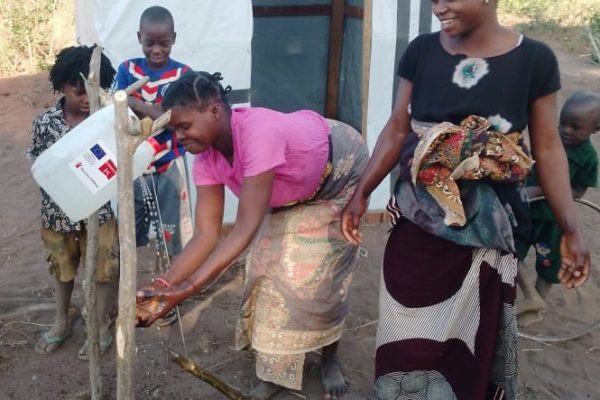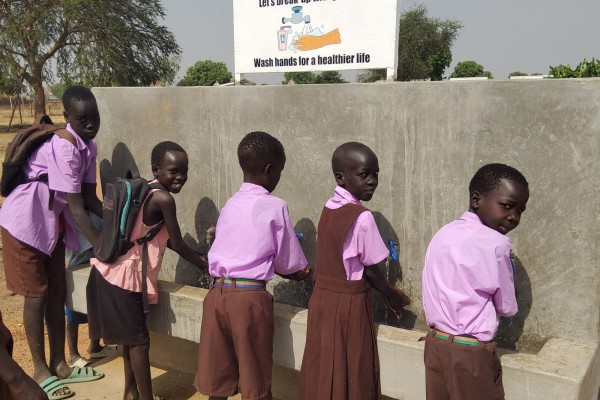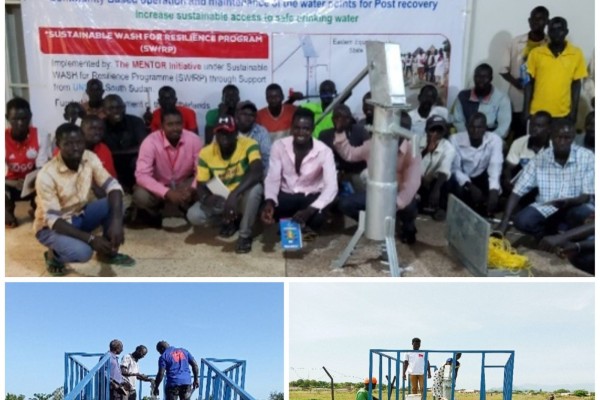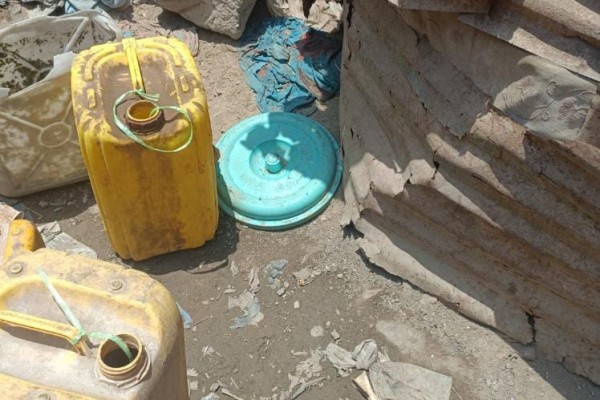By improving water supply systems, sanitation facilities and drainage infrastructure, we address multiple sources of disease transmission to tackle vector-borne and neglected tropical diseases.
Borehole rehabilitation is a straightforward strategy to guarantee access to water, particularly in emergency contexts where these infrastructures are damaged or dysfunctional.
This work includes repairs, maintenance and water quality assessments to fix mechanical failures and pump malfunctions. By restoring and maintaining reliable water sources, we help alleviate water scarcity and reduce the risk of water-borne diseases.
This is especially important in humanitarian emergencies or in post crisis settings where lack of maintenance and/or damaged infrastructure can undermine proper functioning of boreholes.
Key water supply and drainage infrastructure is also repaired to eliminate water accumulation, which can create breeding sites for disease vectors. This work involves fixing broken pipes, damaged water tanks, borehole drainage systems and other components of the water distribution system.
In certain contexts, we install innovative approaches to water collection and drainage systems, as done in Mozambique. This involves designing and implementing efficient drainage systems to prevent waterlogging and minimise standing water.
We provide emergency water supply services during acute stages of emergencies when access to clean water is severely disrupted. Working with partners and local authorities we establish temporary water distribution points, deploy water trucks, and implement emergency water treatments to control the spread of diseases such as cholera and other diarrhoeal diseases.
In northern Mozambique and Angola, MENTOR has supported the installation of Tippy Taps, simple hands-free handwashing stations made using locally available materials such as jerry cans, ropes and sticks. Tippy Taps are a cost-effective way to improve handwashing, especially in areas with limited access to water and sanitation infrastructure.
The taps operate on a simple mechanism where a container filled with water is suspended on a structure, allowing the user to tip it with their foot to release a flow of water.
This hands-free operation minimises the risk of contamination and encourages regular handwashing.
MENTOR has been working with local artisans and craftsman to improve tippy tap design. They are still low cost but are more robust and can last longer with minimal to no maintenance.
One of the key advantages is their adaptability to diverse contexts. They can be easily constructed and maintained by community members, creating a sense of ownership and sustainability. The use of local materials ensures that Tippy Taps can be customised to local contexts making them affordable and easy to build.
In some areas the availability of clean water may be limited, posing a barrier to the consistent use of Tippy Taps. The use of soap may also be a challenge, in which case ash is used for handwashing. Community engagement and behaviour change may be necessary to ensure the proper usage and maintenance of Tippy Taps in the long term.




